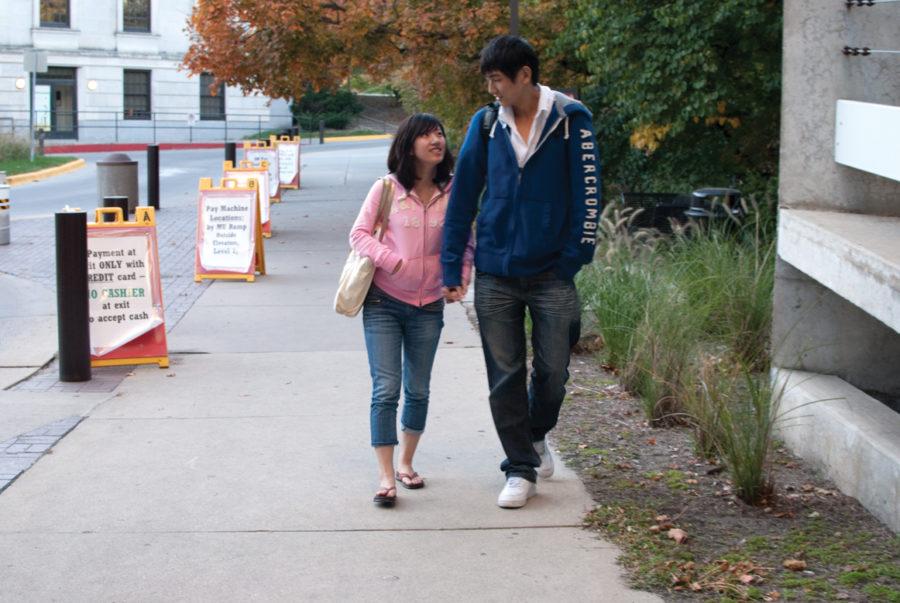Sex workshop opens up sex topics for students
October 7, 2010
ISU students crammed into a conference room Thursday night at Martin Hall to talk about relationships and sex.
“Is there any better way to spend a Thursday night than pizza, sex and relationships?” said Tom Klaus, program director of Teen Pregnancy Prevention Initiatives at Advocates for Youth.
Advocates for Youth is a Washington, D.C.-based organization working to empower young people to make decisions for their own sexual health.
Klaus teamed up with Teresa Downing-Matibag, assistant professor of sociology, to conduct a workshop promoting the quality of youth relationships and its impact on sexual health.
“Not only does the quality of a personal relationships have a lot to do with sexual health in general,” said James Wagoner, president of Advocates for Youth, “but it can also be an important defense against relationship abuse and violence. The more people are empowered to expect quality relationships, the quicker they are to recognize abusive ones.”
At the workshop, students discussed what kinds of relationships they’ve participated in and what kinds of relationships they are most open to. Klaus and Downing-Matibag defined types of relationships as traditional, modern, post-modern and serial hookups. In a traditional relationship, couples meet, date and get married before participating in sexual activities.
Modern relationships include meeting, dating and having sex before marriage. In a post-modern relationship, couples meet, have sex and then date. A serial hookup involves meeting, having sex and going separate ways.
Most students at the workshop preferred modern relationships, and most had experienced either modern or post-modern relationships.
The students then discussed what qualities were most important to each type of relationship, and they voted on which qualities were most important to them.
“We wanted to get a sense of what students this year would have to say about … what a healthy relationship would look like,” Klaus said.
Communication, honesty, trust, respect and sex were all qualities considered most important to a healthy relationship.
Wagoner said Advocates for Youth will use the data collected at the workshop to think through shifts in sex education policy to ensure that relationship education is a central priority within sex education in high schools.
“Relationships are the gateway to sex,” Wagoner said. “If we can give people the ability to form healthy relationships, we can improve sexual health and safety.”
Downing-Matibag said she was pleased with the large turnout for the workshop.
“I think it’s great that students have an opportunity to talk about the kind of relationships they have and what makes them happy,” Downing-Matibag said. “Students really are involved in every type of relationship imaginable … and I think we need to have a public conversation to meet students where they are in their lives so that they can have the best relationships possible during their college years.”







